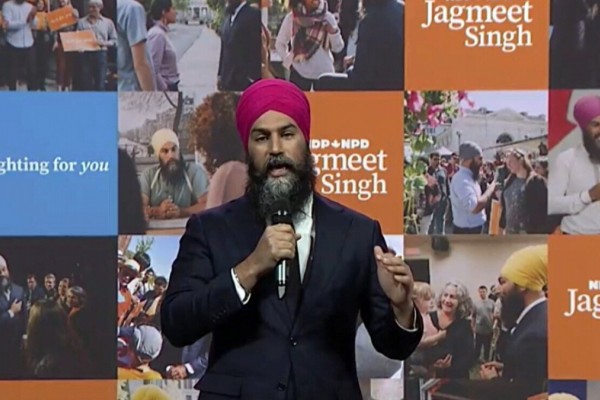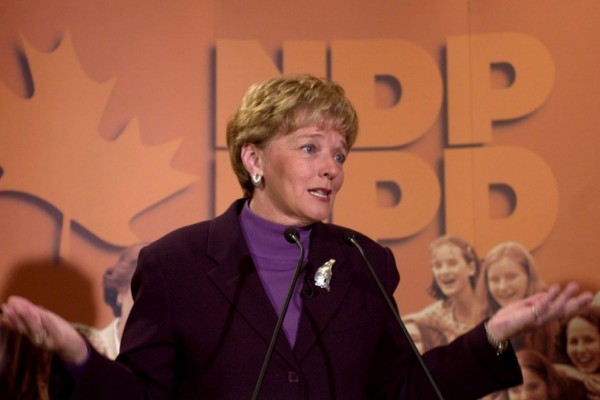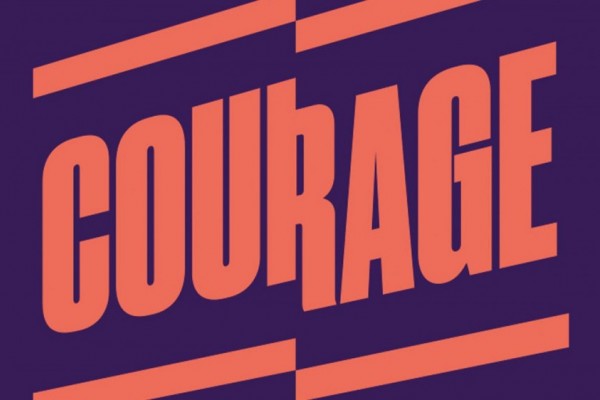Where does the Canadian left go from here?
The NDP needs a deep ideological rethink going back to first principles

Former NDP leader Jagmeet Singh on the campaign trail in Victoria. Photo courtesy Jagmeet Singh/X.
Another election has come and gone, and Canadians have ended up with more or less the same Parliament they had in 2019 and 2021. A Liberal minority government led by former central banker Mark Carney now faces a bellicose Conservative Party, desperate for power after a decade in the wilderness, a gruff-talk-but-no-bite NDP, and a diminished Bloc Québécois.
The Liberals’ once-in-a-generation electoral comeback is no doubt significant. Much of this was due to US President Donald Trump, who has proven a transformative figure and not a freak aberration as many had hoped. Trump has never been popular in Canada. But our smug distaste for American Republicans has understandably curdled into outright animosity and alarm as Trump’s vulgarity sinks to new depths. Even the most pessimistic of analysts rarely predicted that he would flirt with bringing down the global economy through a full-scale trade war, with Canada singled out for special ire—let alone threatening to annex this country and turn it into the “51st state.”
To a certain extent these sinister musings from the attention craving right-wing populist have negatively polarized Canadians (and others) into shifting moderately leftwards. One would think this would benefit progressive movements in Canada, but this was not the case in the election. Voters rushed into the Liberals’ technocratic arms as they promised to protect against the orange menace abroad and the blue one at home.
The NDP got shellacked, reduced down to seven seats, with Jagmeet Singh losing in his own riding (he has since resigned from his post as leader). To add insult to indignity plenty of voters in the Hamilton-Windsor corridor didn’t even bother shifting from the NDP to the Liberals. They instead rushed right to Pierre Poilievre and the Conservatives, who had been making major inroads with workers and the labour movement.
This significant setback for Canada’s social democratic party can’t only be blamed on Trump and the agglomeration of votes to the Liberals and Conservatives (they got a combined 85 percent of the total vote share). Indeed, it should also be pinned on the party’s leadership.
I volunteered with the NDP in 2021 and thought Singh to be smart and compassionate. But I never felt especially inspired by him, and if the diminishing seat return is anything to go by, neither did other progressive Canadians. This was not for lack of trying. Singh’s team fired off constant aggressive messaging, only for much of it to land with a thud. Why didn’t these messages resonate? Without doubt, many voters wondered how Singh could attack Trudeau while propping up the then unpopular Liberals through the supply and confidence deal. Other reasons are simply aesthetic. Too often, the party’s communications felt scripted and generic. One of the only moments of his leadership that gained any significant traction happened when Singh confronted a small group of right-wing activists near Parliament Hill. This came across as authentic and tough. But he was not able to replicate that righteous anger in a convincing way on bread-and-butter issues. Posting about Loblaws, the Weston family and “greedy CEOs” on social media didn’t appear to move the needle.
But these failures of leadership have broader explanations. They are both a symptom and cause of deeper ideological issues. Namely, it is not clear what the NDP and the broader progressive Canadian movement is meant to stand for. Are New Democrats just kinder, gentler Liberals? Do progressives stand for Tommy Douglas-style socialism, Trudeau-esque multiculturalism and toleration, Canadian nationalism with special characteristics, or some combination of these? Singh’s ideologically ambivalent tenure was representative, and it eventually proved fatal. Despite winning some important concessions like dental care, it turns out that relentlessly attacking the Trudeau Liberals while doing everything you can to keep them in office turned out to be an unsquareable circle.
What is needed is a deep ideological rethink going back to first principles. It might seem unusual to talk about a political movement needing a philosophy to guide it, especially in Canada. After all, the Liberals often appear to do just fine without one. But that’s partially the point. Progressive Canadians have prided ourselves precisely on eschewing pragmatic compromise for a more hopeful and principled approach to politics. Unfortunately, without being clearer on what those principles are, that becomes a much tougher pitch to make. This makes a reintroduction to some of Canada’s most significant leftist thinkers timely and helpful.
Thinking left
Left thinking in Canada comes in many variations, but all bear the stamp of the country’s makeup and history. This includes some enduring tensions that point to variable roads forward in 2025. Historically, Canadian leftism was often more comfortably nationalist than is the case now, owing to a rhetorically helpful juxtaposition with our southern neighbour. While many expected these nationalist orientations to have disappeared as mainstream leftists embraced different forms of liberal multiculturalism, we have seen a resurgence of left patriotism in the face of tariffs and other threats from the White House.
The Canadian left is distinct from its American counterpart because it possesses a distinct electoral vehicle with which to pursue its agenda. This also carries with it a history of concrete accomplishments and failures, from the introduction of public health care to many victories for working people.
Left Canadian intellectuals have of course been influenced by this history, and even contributed to it. Many played a role in the labour movement or even ran for office. Indeed, the Canadian left has a complex and distinguished history, which is itself a rich terrain of intellectual exploration, running the gamut from the more radical or revolutionary positions of the “hard left” to the more reformist and pragmatic stance of the social democratic NDP. Here I outline some of these positions, and offer my own take on the liberal socialist ideas we should embrace going forward.
Orthodox Marxism and Marxism-Leninism never found much traction politically or intellectually in Canada. But socialist political economy and more creative springs of Marxism have always wielded considerable influence on Canada’s left. As Andrew Jackson notes in The Fire and the Ashes: Rekindling Democratic Socialism, leading left-wing political economists including Pat and Hugh Armstrong, Rianne Mahon and Leo Panitch have all wielded influence through outlets like Studies in Political Economy. Established in 1979, this journal has been especially important in providing a forum to discuss economic and social issues impacting Canadians from an unapologetically socialist lens. Many of the writers and editors associated with it have achieved an international reputation for the rigor of their analysis. Panitch in particular was an essential Marxist thinker. With Sam Gindin he was author of The Making of Global Capitalism, a seminal work analyzing the connection between the American imperial state and capitalism.
At the level of Marxist political theory Canada’s most important contribution was undoubtedly to “analytical” Marxism through the work of G.A. Cohen, Christine Sypnowich and others. Analytical Marxism was largely introduced in Montréal-born Cohen’s Karl Marx’s Theory of History: A Defense. Here, he attempted to defend the Marxist theory of history in a clear and digestible way. Today, Sypnowich is perhaps the most important Canadian socialist working in the analytical tradition. Her classic book, The Concept of Socialist Law, made clear that a socialist legal system needn’t abandon a commitment to liberal rights and securities, but would instead work to make them more meaningful in the lives of the poor and working class.
Sypnowich’s tip of the hat to liberal rights demonstrates an important truth about almost all strands of Canadian leftism, even those on the hard left: most are characterized by a complex ideological relationship with liberalism. Nowhere is this better demonstrated than in the work of C.B. Macpherson. Perhaps the most well-known Canadian political theorist, Macpherson was a professor at the University of Toronto acclaimed for his pioneering study titled The Political Theory of Possessive Individualism. This book was careful reading and critique of early classical liberalism, and the ideological role it came to play in upholding capitalist relations of production. Macpherson was extremely critical of the forms of domination and alienation characteristic of capitalist societies. But in later books like Democratic Theory: Essays in Retrieval he insisted it was possible to “retrieve” a radical and emancipatory core to liberalism that aligned it with socialist objectives. Indeed, Macpherson pointed out that canonical liberals like John Stuart Mill themselves had recognized this when calling for workplace democracy (and, one might add, overtly calling themselves socialists). Long sidelined, Macpherson’s work is today enjoying a long-awaited renaissance.
Macpherson’s thinking went on to have a huge influence on his student, former NDP leader Ed Broadbent. In Seeking Social Democracy, Broadbent insists that social democracy is a distinct aspiration from centrist liberalism. Nevertheless he acknowledges the “profound impact” of Macpherson’s thought on him. Namely the possibility that there could be a “creative fusion of the best currents from the liberal and socialist traditions.” Broadbent later wrote a dissertation on Mill at the London School of Economics, celebrating the democratic and liberal qualities at the core of his thought while “criticizing the inegalitarian capitalist aspects of his economic theory from the left.” Author and writer Luke Savage is currently working on a massive project of retrieving Broadbent’s writings and reintroducing them. Once completed this will no doubt be a vital contribution to thinking through both his legacy and philosophical issues on the left.
Ed Broadbent in the House of Commons alongside the NDP’s founding leader, Tommy Douglas, right, and House Leader Stanley Knowles, 1970. Photo courtesy CBC.
Then there are writers who engage more extensively with issues of cultural identity and meaning-making. Sherene Razack, professor at the University of Toronto, has written about Canada’s long history of colonialism and imperialism. Her work is a particularly vital resource on Islamophobia. Constance Backhouse offers important insights in her influential Colour Coded, describing the extensive history of discriminatory and racist laws across the country.
There is also an important tradition of “Canadian idealism” best embodied in the philosophy of Charles Taylor. A veritable institution at McGill (and one of the earliest contributors to Canadian Dimension) Taylor is a Hegelian Catholic thinker who has done much to give theological and spiritual depth to left thinking. This includes former NDP leader Jack Layton who described Taylor as a formative influence. Taylor has long argued that the slide into modernity is a mixed blessing. On the one hand, it engendered an expansion of basic liberal rights and freedoms for many through a greater emphasis on equality and personal authenticity. On the other, this came at the price of greater alienation and the breakdown of a sense of community. In his recent Cosmic Connections Taylor argues that the egalitarian ethic of modernity is richer and more advanced than the traditional ethic many on the right wish to return to, let alone the ethic of neoliberal capitalism. But this egalitarian ethic is unlikely to thrive unless the left learns how to rebuild communities bound by a shared sense of meaning and even transcendence. Failure to do so will mean ceding these concerns to the right, which will invariably give them an exclusionary, hierarchical “pre-modern” twist.
Looking ahead
This pocket summary of left Canadian thinkers is not intended to be comprehensive or even panoramic. It is instead suggestive of resources the Canadian left can turn to in order to rediscover its raison d’etre. Helping the Canadian left recognize itself as part of a complex, dynamic and prestigious intellectual tradition it can draw on is a vital task; especially when cultivating a cultural vanguard that will need to compete with the right’s current dominance of social media. Beyond just an awareness of where one is situated intellectually, being aware of a canon of Canadian leftists can help provide resources for future debates and dialogues—and perhaps just as vitally serve as a jumping off point for further analysis and creative theorizing.
This will be absolutely crucial in revitalizing the NDP with fresh ideas. More importantly, it is necessary to giving the party a greater sense of self and public identity alongside new purpose. Right now too many people see the NDP as, at best, kinder but less realistic Liberals, and at worst, well-meaning but ineffectual at the national level. This can’t be solved at a purely rhetorical level as though problems of the soul are just matters of branding and ideology. Much of the antipathy is unwarranted since there are many ways of being left that entail being the most staunch defenders of basic principles Canadians care about. Canadian leftists and New Democrats needn’t cede the achievements of liberalism to the Liberal Party. But they need to be willing to embrace muscular commitments to economic democracy and challenging the power of capital if they are to recover trust from the working class. This means extending basic rights and democratic forms into the workplace.
For my money I think that a kind of liberal socialism of the sort defended by the late Cohen, Macpherson, and Broadbent is the way forward. Arguments for greater labour power, unionization, and challenging economic elites can gain a lot of traction. But they must be accompanied by an insistence that basic liberal rights will not only be respected, but expanded, should the left wield power. There is an opening to insist that the liberal rights so many cherish have never been adequately extended into the workplace, where many of us spend a plurality of our waking hours and energy. Why should bosses be allowed to wield enormous power over their employees when we cherish the right to vote, organize, and express ourselves in other political contexts? This is an idea pioneered by stalwarts like Broadbent. In a 1969 paper titled “Industrial Democracy: A Proposal for Action,” Broadbent commended the importance of liberal rights, but noted:
[P]olitical liberties without a trade union movement would have left industrial man as mere chattel. Political democracy without full industrial democracy in an economically advanced Canada will leave him in a state which is neither degraded nor emancipated; he will remain a semi-contended dependent, subject to the power of others.
For this reason liberal democracy needs to be complemented by a socialist commitment to democratizing the economy to ensure self-realization is available to all.
Accompanying this, we should stress that the left is committed to both a methodological collectivism/communitarianism and individualism. Put in less jargony terms we need to emphasize that individual authenticity and flourishing is not achieved in spite of, but through, open and inclusive communities where one enters into solidaristic relationships with others. This is true whether the communities are a local church, mosque or synagogue, a revitalized labour union, or a workplace set to be organized and managed democratically by the people who work there. In the United States Bernie Sanders has already shown how a commitment to the importance of individual rights and collective action can be fused politically, via resonant statements of principle like “Not me. Us.”
Jack Layton was the first progressive politician who inspired me enough to go to a rally. He used to say optimism is better than despair. I think he was half right. Right now pessimism of the intellect says the Canadian left is in a bad place. But optimism of the will demands that if we have failed, we fail again, and fail better until we succeed. The stakes are too high and the cost too demanding to do otherwise. Liberty, equality and solidarity for all remain attractive principles with wide traction across the country. We should ensure they mean something for everyone from high to low.
Matt McManus is a Lecturer in Political Science at the University of Michigan and the author of The Political Theory of Liberal Socialism, among other books.










